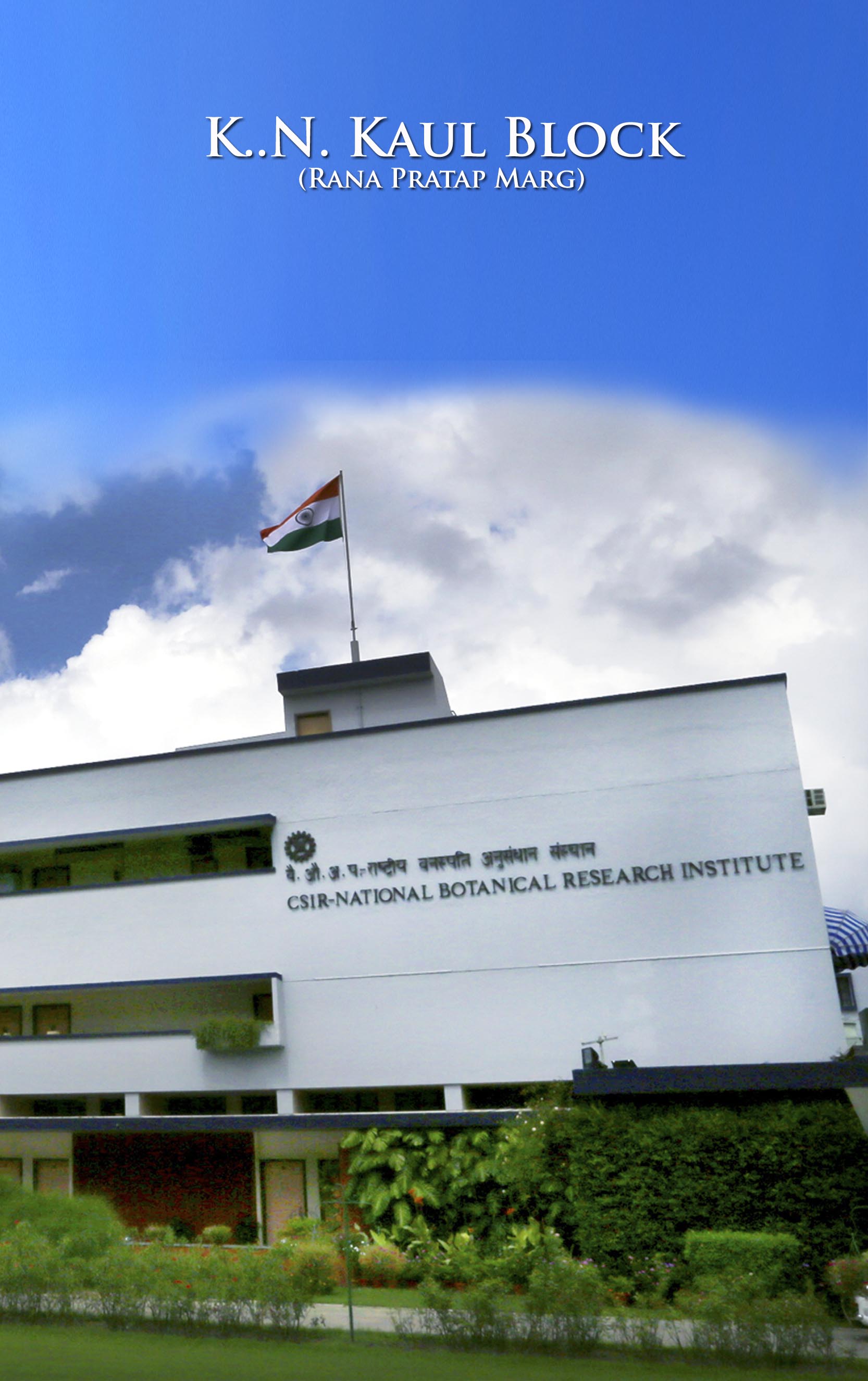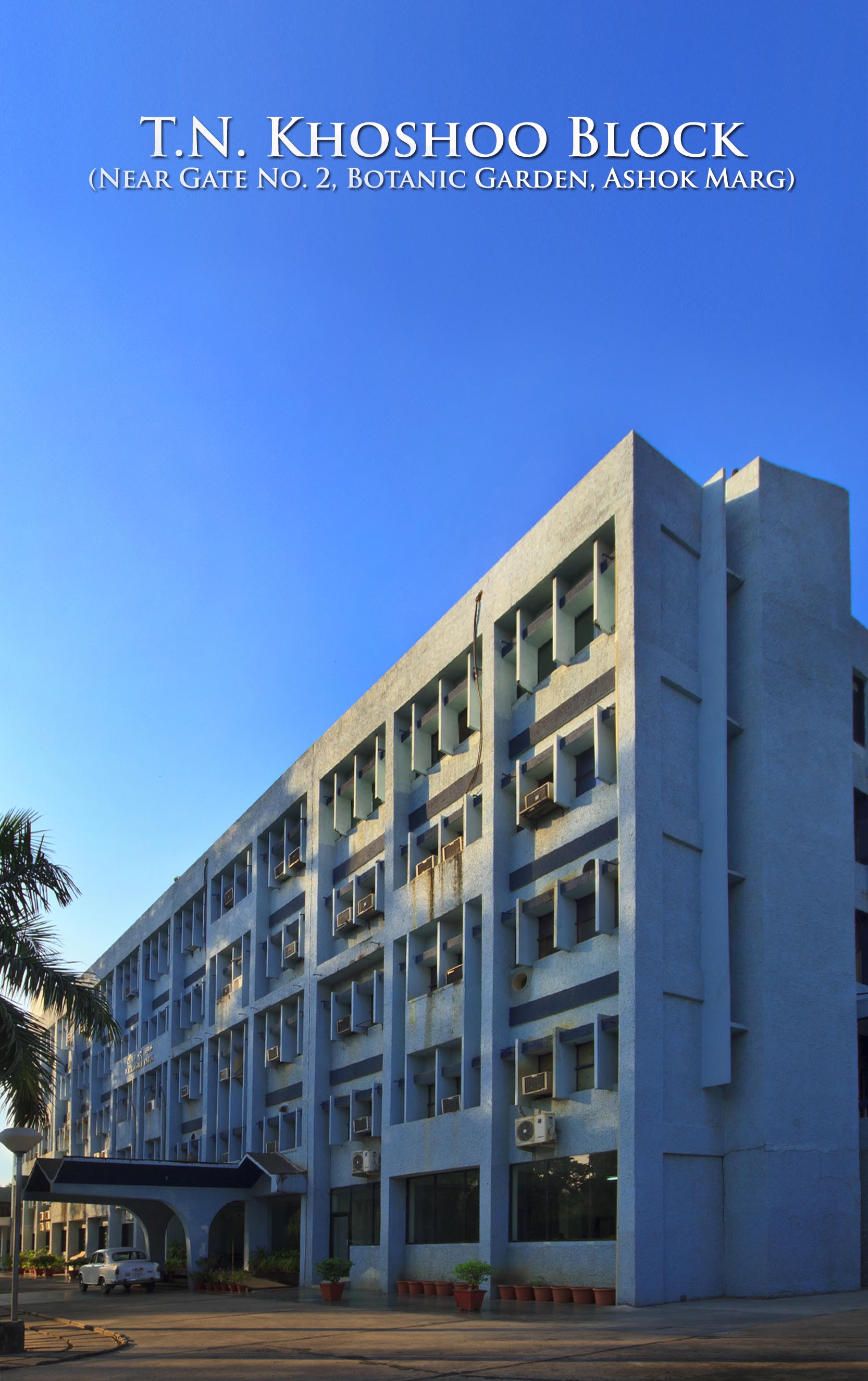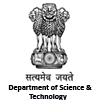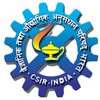

Dr. Soumit K. Behera
Senior Principal Scientist
Research Interests
Dr. Soumit K. Behera currently works at the Plant Ecology and Climate Change Science Division. His group has been working in the field of forest biomass and productivity assessment, monitoring and modelling using field measurements. His group primary focusing on long-term studies for understanding carbon dynamics in tropical deciduous forests.
Dr. Behera is experienced in forest ecology, field measurements for biomass and productivity studies using silvicultural and sensor measurement techniques. As a leading team member, he has assessed, modelled and validated the biomass and productivity in three forest types in an Indian tropical deciduous forest. He has also generated inputs for 11 eco-physiological variables from in-situmeasurements to run Biome-BGC, a production efficiency model. He has standardized and established a new indirect method for LAI estimation in tropical deciduous forest, and formulated forest type-wise aboveground biomass equations using LAI as variable. He has served as a nodal Principal Investigator of an investigation entitled ‘Exploratory studies on climate change and adaptation of species complexes’ during 2008-2012, wherein long-term ecological observation plots were established in three forest communities at Katerniaghat Wildlife Sanctuary in northern India, for understanding carbon dynamics in tropical deciduous forests.
Dr. Soumit K. Behera
Senior Principal Scientist
Research Summary
Tropical deciduous forest plays disproportionately important role in carbon sequestration and storage, with complex regulation mechanism by local environment (microclimate) and community structure. Long term ecological research provide continuous data for systematic understanding of the ecosystem structure and function at population/community level, thereby provide inputs for better carbon modeling and studying long term effect of changing climate.For very first time, the forest understory was studied for diurnal and seasonal variations in five microclimatic parameters; i.e. photosynthetically active radiation (PAR), air temperature, soil temperature, ambient CO2 and air absolute humidity in tropical deciduousforests.Assessed the above ground biomass and biomass carbon at species level in three forest communities i.e. dry mixed, sal mixed and teak plantation using DBH allometric models from long term ecological research (LTER) plots and established humidity and air temperature were the two major microclimatic variables supporting higher carbon sequestration using PCA and multivariate analysis.
We performed Biome BGC simulation for three forest communities (dry mixed , sal mixed and teak plantation) having distinct tree species compositions, different carbon assimilation rates and microclimate, using daily meteorological data at Katerniaghat Wildlife Sanctuary, India. Out of 39 eco-physiological parameters, 11 major eco-physiological parameters were parameterized specific to above three forest communities.We simulated the monthly NPP and LAI for three forest communities and further validated the model-derived NPP and LAI with observed NPP and LAI data.The model revealed that NPP attained peak during the autumn season (particularly in September) for all 3 forest types, while plants have maximum canopy cover leading to optimum photosynthetic gain.This study validated the applicability of Biome BGC to simulate LAI and NPP for tropical deciduous forest in Indian sub-continent. NPP was simulated very well as compared to observed data, however, LAI was underestimated in current Biome BGC simulation.
Assessment of forests soil CO2 efflux is essential for understanding carbon exchange process between atmosphere and the terrestrial biosphere as part of the global carbon budget and further predicting it’s change in response to climate change. Soil CO2 flux is extremely dynamic, and is controlled by spatio-temporal changes in soil temperature, water content, pH, carbon in soil. The soil CO2 efflux is also controlled by type of vegetation cover, under canopy microclimate and soil physico-chemical properties. We studied the diurnal soil CO2 efflux patterns in three forest communities (dry mixed, Sal mixed and Teak plantation) in an Indian tropical deciduous forest site of Katerniaghat Wildlife Sanctuary located in Terai. We also tried to investigate the interaction of abiotic factors on soil CO2 efflux in Indian tropical deciduous forest.
Dr. Soumit K. Behera
Senior Principal Scientist
Publications
– Soumit K. Behera, P. Tripathi, M. D. Behera, R. Tuli, 2019. Modeling net primary productivity of tropical deciduous forests in North India using bio-geochemical model.Biodiversity and Conservation, 28: 2105-2121.
– A. Gautam, N. Kumar, A.K. Dubey, R. Ranjan, N. Sahu, Soumit K. Behera, K. Shah, R. D. Tripathi, S. Mallick, 2019.Sucrose plays key role in amelioration of arsenic induced phytotoxicity through modulating phosphate and silicon transporters, physiological and biochemical responses in C3 (Oryza sativa L.) and C4 (Zea mays L.). Environmental and Experimental Botany, DOI.org/10.1016/j.envexpbot.2019.103930.
– Behera, Soumit K. Behera, S. Sharma, 2019. Recent advances in biodiversity and climate change studies in India. Biodiversity and Conservation, 28:1943–1951.
– N. Sahu, S. N. Singh, P. Singh, S. Mishra, N. Karakoti, R. Bajpai, Soumit K. Behera, S. Nayaka, D. K. Upreti, 2019. Microclimatic variations and their effects on photosynthetic efficiencies and lichen species distribution along elevational gradients in Garhwal Himalayas.Biodiversity and Conservation, 28:1953–1976.
– S. Mishra, L. B. Chaudhary, M. K. Jain, V. Kumar, Soumit K. Behera, 2019. Interaction of abiotic factor on soil CO2 efflux in three forest communities in tropical deciduous forest from India.Environmental Monitoring and Assessment, DOI : 10.1007/s10661-019-7689-4.
– S. Mishra, K. Singh, N. Sahu, S. N. Singh, N. Manika, L. B. Chaudhary, M. K. Jain, V. Kumar, Soumit K. Behera, 2019. Understanding the relationship between soil properties and litter chemistry in three forest communities in tropical forest ecosystem.Environmental Monitoring and Assessment,DOI : 10.1007/s10661-019-7691-x.
– P. Tripathi, M. D. Behera, Soumit K. Behera, N. Sahu, 2019.Investigating the contribution of climate variables to estimates of net primary productivity in a tropical deciduous forest in India.Environmental Monitoring and Assessment,DOI : 10.1007/s10661-019-7684-9.
– A. K. Dubey, N. Kumar, A. Kumar, M. A. Ansari, R. Ranjan, A. Gautam, Meenakshi, N. Sahu, V. Pandey, Soumit K. Behera, S. Mallick, V. Pande, I. Sanyal, 2019. Over-expression of CarMT gene modulates the physiological performance and antioxidant defense system to provide tolerance against drought stress in Arabidopsis thaliana L..Ecotoxicology and Environmental Safety,171: 54-65.
– S. Mishra, S. N. Singh, M. Kumar, L.B. Chaudhary, M.K. Jain, V. Kumar, N. Pandey, Soumit K. Behera, 2019.Assessment of Essential Nutrients in Soil with Litter Chemistry of Tropical Deciduous Forest, India.International Journal of Plant and Environment, 5(1):40-46.
– N. Kumar, A. Dubey, A. K. Upadhyay, A.Gautam, R. Ranjan, S. Srikrishna, N. Sahu, Soumit K.Behera, S. Mallick, 2017. GABA accretion reduces Lsi-1 and Lsi-2 gene expressions and modulates physiological responses in Oryza sativa to provide tolerance towards arsenic. Scientific Reports,7: 8786, DOI:10.1038/s41598-017-09428-2.
– Soumit K. Behera, N. Sahu, A.K. Mishra, S.S. Bargali, M. D. Behera, R. Tuli, 2017. Aboveground biomass and carbon stock assessment in Indian tropical deciduous forest and relationship with stand structural attributes. Ecological Engineering, 99: 513-524.
– A.K. Mishra, K. Singh, Soumit K. Behera, L. B. Chaudhary, B. Singh, R. M. Mishra, 2017. Soil properties in response to different plant community structures in tropical moist deciduous forest from northern India.Climate Change and Environmental Sustainability, 5(1): 66-74, DOI: 10.5958/2320-642X.2017.00007.2.
– V.C. Pandey, N. Sahu, Soumit K. Behera, N. Singh, 2016. Carbon sequestration in fly ash dumps: Comparative assessment of three plant association.Ecological Engineering, 95: 198–205.
– M.D. Behera, P. Tripathi, B. Mishra, Shashi Kumar, V. S. Chitale, Soumit K. Behera, 2016. Above-ground biomass and carbon estimates of Shorearobusta and Tectonagrandis forests using QuadPOL ALOS PALSAR data. Advances in Space Research, 57: 552-561.
– A.K. Dubey, N. Kumar, N. Sahu, P. K. Verma, D. Chakrabarty, Soumit K. Behera, S. Mallick, 2016. Response of two rice cultivars differing in their sensitivity towards arsenic, differs in their expression of glutaredoxin and glutathione S transferase genes and antioxidant usage. Ecotoxicology and Environmental Safety, 124: 393-405.
– N. Kumar, A. K. Dubey, P. K. Jaiswal, N. Sahu, Soumit K. Behera, R. D. Tripathi, S. Mallick, 2016. Selenite supplementation reduces Arsenate uptake greater than Phosphate but compromises the Phosphate level and physiological performance in hydroponically grown Oryza Sativa L..Environmental Toxicology and Chemistry, 35: 163-172.
– Soumit K. Behera, M. D. Behera, R. Tuli, 2015. An indirect method of estimating leaf area index in a tropical deciduous forest of India.Ecological Indicators, 58: 356-364.
– A. Kumar, O. Bajpai, A. K. Mishra, N. Sahu, Soumit K. Behera, S. S. Singh, L.B. Chaudhary, 2015. A checklist of the flowering plants of Katerniaghat wildlife sanctuary, Uttar Pradesh, India. Journal of Threatned Taxa, 7(7): 7309-7408
– P.S. Roy,..,Soumit K. Behera..et. al., 2015. New vegetation type map of India prepared using satellite remote sensing: Comparison with global vegetation maps and utilities. International Journal of Applied Earth Observation and Geoinformation, 39: 142-159.
Dr. Soumit K. Behera
Senior Principal Scientist
Patents
Dr. Soumit K. Behera
Senior Principal Scientist
Research Scholars
Ms. Shruti Mishra, DST Women Scientist
Mr. Shiv Naresh Singh, Junior Research Fellow
Mr. Ragib Hussain, CSIR-Junior Research Fellow
Mr. Rahul Kumar, CSIR-Junior Research Fellow
Mr. Anil Kumar Verma, Junior Research Fellow
Mr. Aditya Tripathi, Junior Research Fellow
Mr. RamyaRanjan Paul, Project Assistant-II
Dr. Soumit K. Behera
Senior Principal Scientist
Address
Plant Ecology and Climate Change Science Division
CSIR-National Botanical Research Institute, Rana Pratap Marg
Lucknow-226001, Uttar Pradesh, India.
Phone: 0522-2297860
Email:soumitbehera@nbri.res.in;soumitkbehera@gmail.com




















